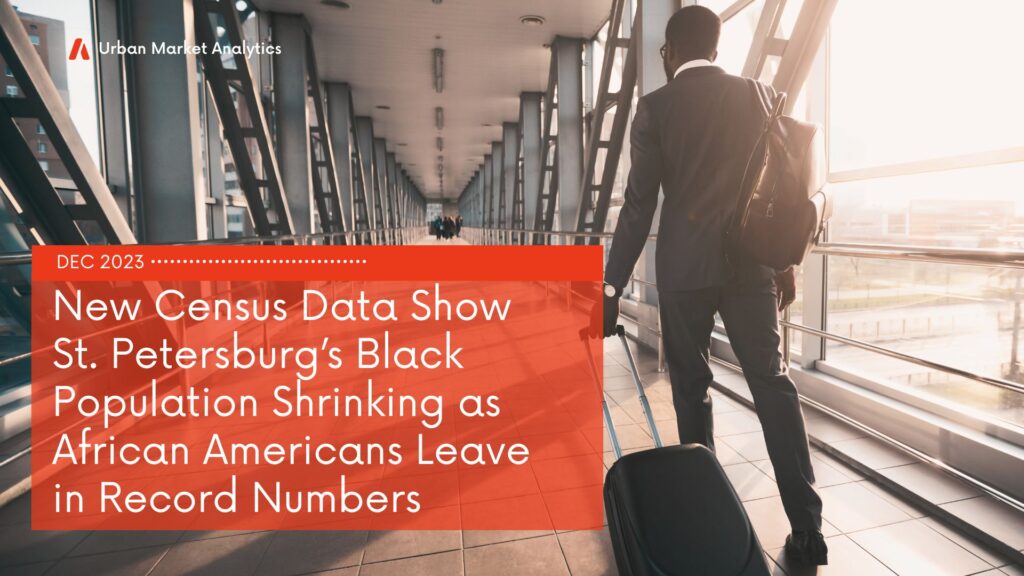
St. Petersburg’s Black population is shrinking at a rapid pace, according to U.S. Census data released on December 7th. The city’s African American population shrank for a fourth year in a row in 2022.
From 2018 to 2022, St. Pete lost 10% of its Black population, while the rest of Pinellas County experienced double-digit Black population growth, and Florida had 7% growth in Black residents.
A report released this week by Urban Market Analytics (UMA) shows that outmigration is the biggest contributor to the trend, which means that more African Americans are moving out of the city than the number moving in.
St. Pete had negative net migration of African Americans for 10 of the past 12 years of census data available, but the Black exodus rate reached record highs over the past three years.
The trend appears to be strongest among younger and college-educated African Americans.
A local survey project is hoping to discover why Black residents are leaving St. Pete.
Among 20 African Americans who previewed the report to lend perspective, over three-quarters speculate that housing costs are to blame, and nearly two-thirds say that lack of employment and business opportunities for African Americans is a factor.
Rents and home prices in St. Petersburg have skyrocketed since the onset of the COVID-19 pandemic, leading many to seek out less expensive markets.
Some are relocating to nearby cities such as Clearwater and Largo (which are among 15 cities in Pinellas that saw significant Black population growth over the past decade).
But a large portion are leaving Pinellas County altogether. Anecdotes collected by the Power Broker suggest that Atlanta, New York, Miami, and Washington, D.C., are among the cities attracting young professionals and other African Americans from St. Pete.
Closer to home, St. Pete has lost Black residents to Bradenton, Palmetto, Brandon, and Tampa.
Ashon Nesbitt, CEO of the Florida Housing Coalition, identifies himself as one of many in his age group who left the city. The 43-year old St. Pete native says housing costs and shortages are a key issue, but also points to cultural factors.
His opinion: “I think retaining and growing the Black population will take a multi-pronged approach. The more our kids pursue education and training in jobs that are growing in the city, the more they see themselves in the local culture, the more they will stay.”
Nesbitt, who now lives in Tallahassee, continued, “Projects like the redevelopment of the Deuces (22nd Street South) and cultural events that take place there are important not only for their economic value, but for their cultural impact – becoming the destination for younger people to build connections with others and in effect with the city.”
Reasons for the trend may soon become clearer. The Power Broker Magazine is asking current and former African American residents of St. Pete to take an opinion survey to help identify top factors driving the city’s Black population losses. The survey is also open to African Americans who currently or previously worked in St. Petersburg.
Watch for a report on survey results in January 2024.
In the meantime:
Click here to take the survey (and please share with others);
Click here to for the new report on African Americans leaving St. Pete in record numbers; and
Feel free to email me your thoughts and questions at gypsy@powerbrokermagazine.com.


















